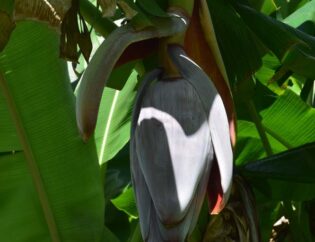
Can You DIY a Lawn Sprinkler System?
If your lawn needs better irrigation, you might be wondering about a lawn sprinkler system. Installing a sprinkler system isn’t as difficult as you might think. All you need is some time, the right materials, and some preliminary research. In this article, we’ll go over the costs and materials of installing an irrigation sprinkler as well as offering step-by-step instructions on what to do.
How Much Does Sprinkler Installation Cost?
The biggest incentive for installing your own sprinkler system is saving money. While professional estimates can range up to $25,000 per 1/4 acre, you can usually do it yourself for between $1,000 and $1,500.
The main cost of doing this project yourself is the materials. However, you may also find yourself paying rental fees for equipment too. An effective irrigation system usually requires a trenching tool, which you can rent for between $100 and $200 a day. The alternative, unfortunately, is digging trenches by hand, which is exhausting and time-consuming work.
Other costs might include professional plumber and electrician services. These professionals can ensure that your sprinkler system is correctly hooked up to your home’s water supply and wired to an automatic timer. Each of these consultations is likely to set you back $200 to $300.
What Materials Do You Need to Install an Irrigation Sprinkler?
Take note of the materials you will need during installation. Take careful time selecting your sprinkler heads and bubblers.
Your system will be constructed with either flexible or rigid PVC, a durable type of plastic pipe. Either one should work fine for most projects.
Rigid PVC costs about $0.25 for a linear foot of 3/4-inch pipe. Flexible PVC costs about $1 per linear foot of 3/4-inch pipe. The main benefit of flexible PVC is a faster installation. Flexible PVC requires fewer connective pieces and fits more easily into trenches that bend or curve.
What Should You Know Before Starting?
Before you start digging, it’s vital to have a plan of your yard. This includes knowing the location of trees and other structures. But the most important thing is to be aware of your utility lines. If you hit a gas line or sewer line, it could have expensive or dangerous results. You will also need to know where your water lines are, since these will be attached to your sprinkler system.
You may also want to call your local home or building authority and ask about requirements for DIY projects in your area.
How to Install a Sprinkler System
Careful planning in the beginning stages ensures nothing is overlooked. Double-check what permits you may need in your area. Check your area’s building codes to keep your installation by the book.
Map out your yard and its major features like trees, paths, etc. Mark your irrigation zones, where you would like to place sprinkler heads and bubblers, and where you will locate water supply lines. Make sure to mark out a space for your water supply shutoff valve and any system sensors you may want to install.
Many manufacturers will help you figure out these placements if you send them information on your location, water supply system, and other installation info. These often include downloadable guides, how-to videos, and additional free info designed to make installation as easy as possible.
Once you have your finished installation plan, you can begin trenching. Mark the eventual locations of your supply lines using string lines, lawn paint, or chalk. Dig your water supply line channels. You can rent gas-powered trenching tools by the day to make this work quick and easy. Then, lay your PVC, install connections, and hook up your system. Check that everything is in proper working order before covering up your supply lines.
What We Offer
If you decide that you don’t want to try installing a sprinkler system on your own, that’s just fine. Professional lawn irrigation services can help. We offer the best sprinkler installation services in our area at an estimated $13,000 per 1/4 acre. With us, you can feel confident that your lawn is in great hands.









